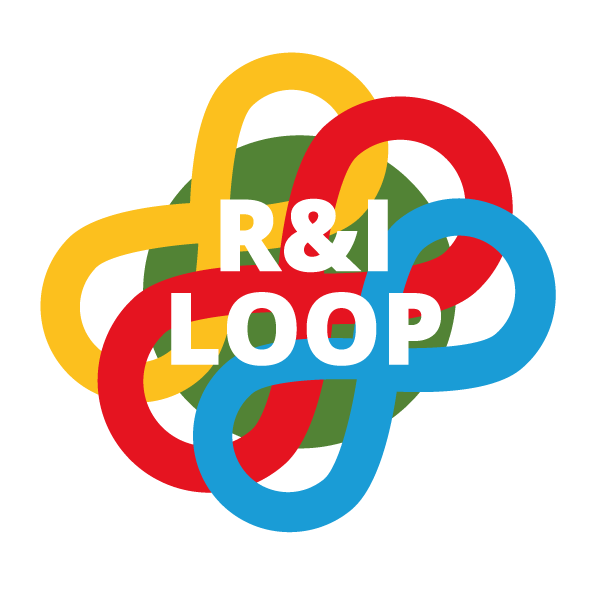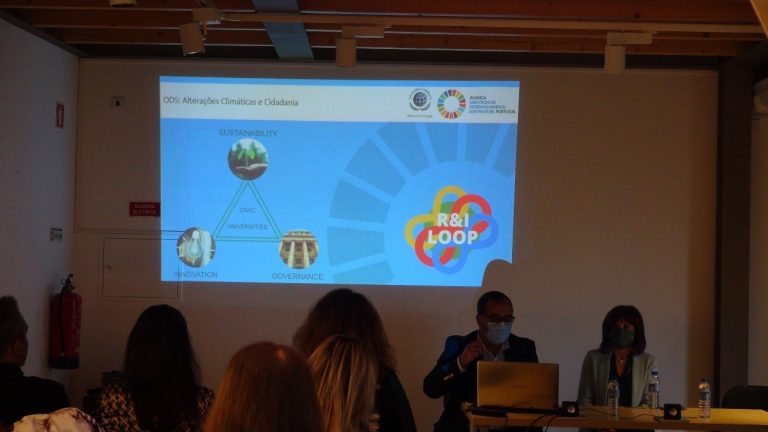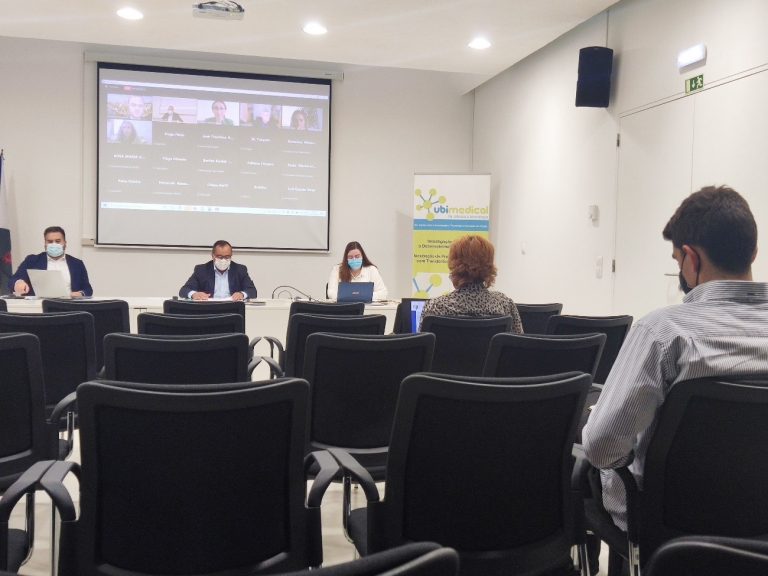On November 4th, 2022, the workshop “Science Communication” of the R&I Loop Project took place in the Faculty of Engineering of the University of Beira Interior. Supported by the Erasmus+ programme of the European Union, the R&I Loop project aims to leverage new models of Civic Universities, taking as principles the regional dimension and social innovation, leading to the opening of citizen-centered strategies.
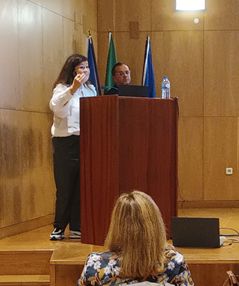
Having as instructors the coordinator of the R&I Loop project, Professor João Leitão (UBI), as well as Dr. Dina Pereira (UBImedical), the workshop counted with 18 participants, who had the opportunity to receive tools and tips to better communicate science, always taking into account what their target audience would be, always referring to the best framework according to the segmentation made.
After the introduction, the participants were divided into groups in order to do some exercises to apply the suggestions of better communication of science previously suggested. Situations such as the identification of target audiences for whom we communicate science, the description of the profiles of new target audiences, or even the simulation of a podcast with the conduction of a short interview with a fellow researcher, in order to better frame the communication to the audience, were some of the exercises that were developed during the workshop.
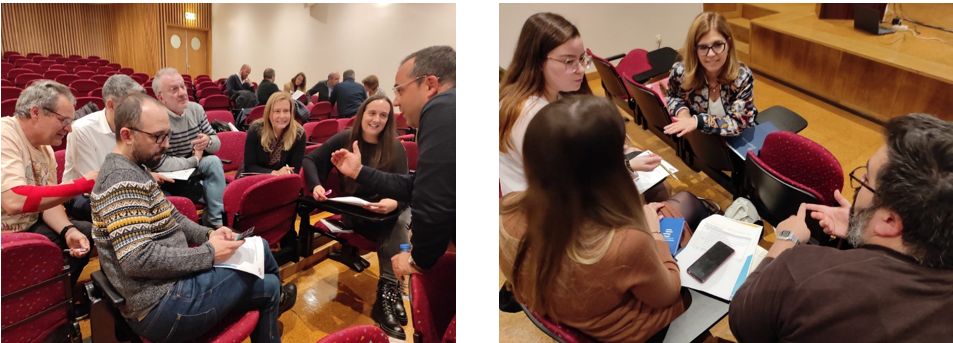
This was already the second workshop held in Portugal under the R&I Loop project, the first of which took place in July 2022 under the theme “How to become a Civic University? Inception and Outgoing Toolkit”, where the participants applied tools to their research units, so that they self-assess themselves as entities of a civic university and also become more civic.
The first day of the Workshop “How to become a Civic University? Inception and Outgoing Toolkit” held in July 2022 included an opening session with a Key-note Speech provided by Michael Fritsch (Friedrich Schiller University Jena, Germany) and Michael Wyrwich (Rijksuniversiteit Groningen, the Netherlands), who addressed the topic “Does successful innovation require large urban areas? Germany as a Counter-Example”, and also a panel presentation on: “Civic Universities and Ecosystems”, moderated by Joana Costa (University of Aveiro, Portugal).
The second day began with two parallel panels, one dedicated to “Best Practices”, which was moderated by Rosa Valdés (Universidad Politécnica de Madrid, Spain) and another on “Intelligent Specialization I” moderated by José Preciado (Universidad de Extremadura, Spain), following the event with a panel on: “Civic Universities: Concepts and Applications”, which was moderated by Hugo Pinto (Centre for Social Studies, University of Coimbra and University of Algarve, Portugal). In the afternoon, Fernando Alexandre (University of Minho, Portugal) was the Keynote Speaker, making a presentation on: “European Structural Investment Funds and productivity: an empirical analysis”; followed by a second panel on: “Smart Specialization II”; which was moderated by Ramona Tiganasu (Alexandru Ioan Cuza University of Iasi, Romania).
At the end of the event the organizing committee awarded three prizes, first, in the category of “Best Practice”, the presentation of Ângela Gonçalves – “The civic mission of fostering entrepreneurship in BIOHEALTH: the case study of BIO-ALL, an Erasmus+ project”, was the distinguished one. Second, in the category of “Best Junior Presentation”, the researchers Petra Szávics and Sabrina Tomasi were distinguished, with the presentation entitled: “Drivers and challenges of university involvement related to RIS3: Perceptions from five European regions”. Third, the “Best Paper” award went to Hugo Pinto, for his presentation entitled: “Institutionalization of innovation in peripheral regions: the role of universities in smart specialization in Portugal”.
This workshop is an important milestone for creating an international discussion forum devoted to multidimensional approaches on the role played by civic universities in promoting ecosystems, as well as structural dynamics and change, and their corresponding impacts on the quality of life of citizens and regional development, especially in low density regions. It also made available a set of international benchmarking case studies on best practices and initiatives to create and foster sustainable ecosystems at the regional level. Furthermore, it highlighted how these international best practices can be replicated in the future to design a new generation of smart public policies to foster the creation of more innovative business units and promote sustainable practices.
